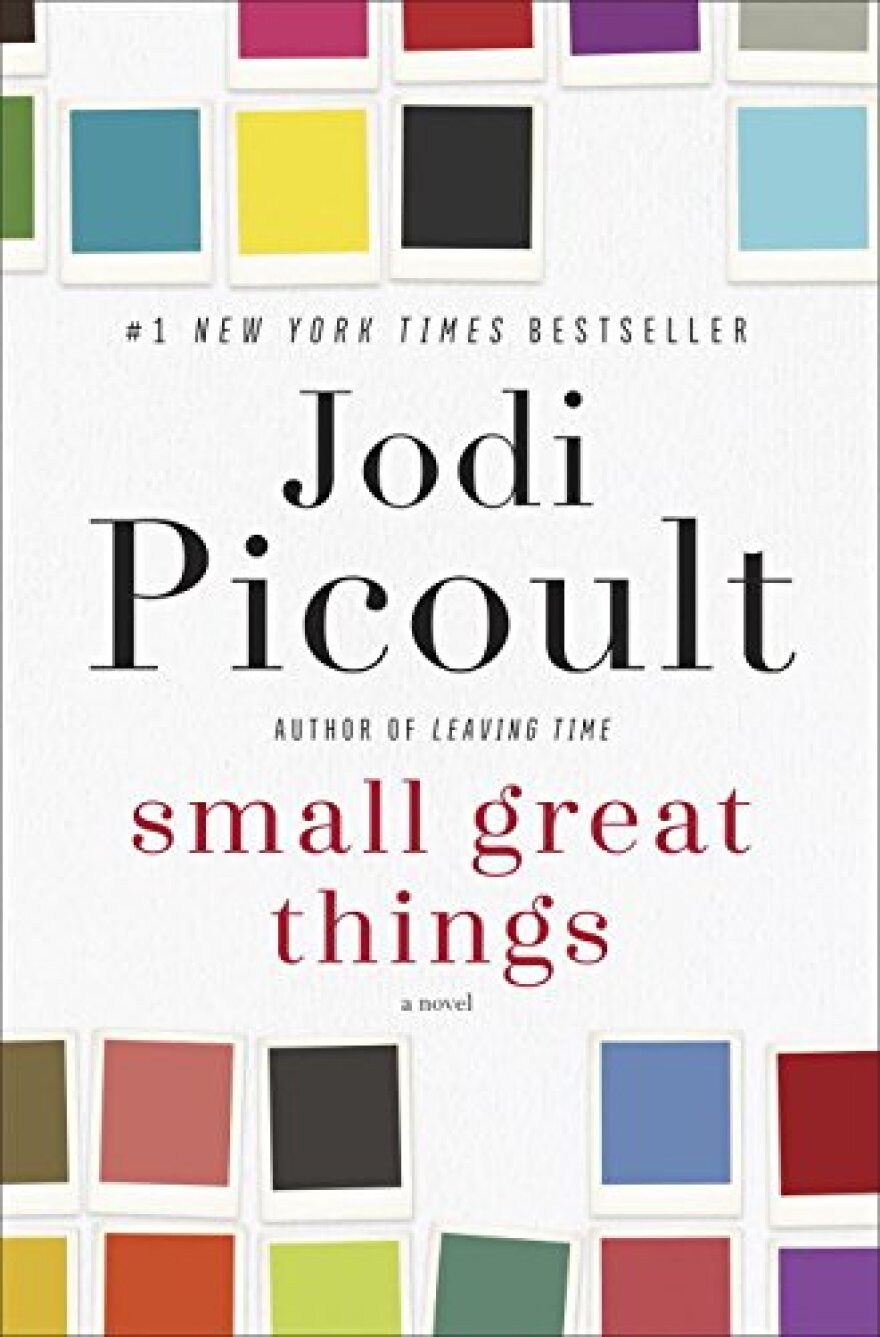“Small Great Things”
Author: Jodi Picoult
Publisher: Ballantine Books
Pages: 464
Price: $28.99 (Hardcover)
This is the third of the three finalists for the Harper Lee Prize for Legal Fiction, given to a novel which “features the role of lawyers in society and their power to effect change.” Read all three and cast your vote at abajournal.com by June 30.
Jodi Picoult is a terrifically successful author of popular novels, many of which have been best sellers, the most popular of which may be “Leaving Time.”
She states in her Author’s Note, which comes at the end, that she wanted for many years to write a novel about the fraught topic of racism in America but lacked confidence to handle the subject properly. Now she has done her research, enrolled in social justice workshops, talked with many, experts and laymen, black and white. Picoult’s conclusions, so to speak, are that being white carries many privileges white people don’t ever think about, that white people, however progressive, cannot recognize racism in themselves, and delude themselves into believing they don’t “see” color.
These tenets direct the action of the novel, which lays out the problems all too clearly.
Ruth Jefferson, a graduate of Yale Nursing School, has been a neonatal nurse, the only black nurse, in the labor and delivery unit of Mercy-West Haven hospital in Connecticut for 20 years. Ruth is the best: skilled, experienced, empathetic, virtually without flaw.
She is raising her teenage son Edison alone because her husband, a soldier, was killed on duty in Afghanistan when Edison was a little boy.
One morning she assists at the birth of Davis Bauer, son of Turk and Brittany. Note the names: cruel Turk, Anglo Brittany. Infant Davis named after Jefferson. (The couple had rejected Thor and Loki.) They have high hopes for their boy, believing his name will serve him well: “Davis is the kid other kids look up to.” What if any other boys call him Dave or Davy or David? “He’ll beat up anyone who calls him that by mistake.”
Turk has a Confederate flag tattooed on his forearm and a swastika on his skull.
He was, in the past, a perpetually violent street activist, but now manages a white supremacy website, using the internet to recruit. His group believes the internet is a better way to attract new members than demonstrations or parades, saying “It was even more terrifying to people to know we walked and lived among them unseen.” Tense and neurotic, he still enjoys the occasional outing. To relieve tension, he knocks the teeth out of a harmless homeless man. On a hot date during their courtship, he and Brit together fall upon and brutally beat two gay men who are quietly having a picnic lunch.
Seeing Ruth, Turk demands that no black personnel be allowed to touch his son.
Incredibly, the hospital agrees to Turk’s demand, and the next day, with only Ruth in the room, little Davis stops breathing. Ruth hesitates, for a moment, and is soon arrested for negligent homicide and murder, roughed up by police at 3:00 AM, and jailed. Her nursing license is suspended. The hospital administration, fearing a lawsuit, throws her WAY under the bus.
Public defense attorney, white lawyer Ms. Kennedy McQuarrie, decides she wants to represent Ruth but fears “[the case] will go to someone in my office who has more experience than I do, or who plays golf with my boss or who has a penis.”
Nevertheless, Kennedy gets the assignment and works diligently to clear Ruth.
Her strategy is to demonstrate the uncertainty as to how the baby died. The murder charge was a ridiculous overreach in any case. No one but Turk thought Ruth a killer.
Kennedy, who claims not to SEE race, refuses to inject race into the defense, even though race was at the start and the heart of the problem. Ruth, who has quietly ignored slights and small insults all her life, is aroused and in the course of their preparation educates Kennedy on the ubiquitous nature of racism in America, as some readers may be educated in the reading of this book.
The long trial scenes give plenty of opportunity for polemic, but the didactic message overwhelms the literary medium. Just as nineteenth-century America needed Uncle Tom’s Cabin, contemporary America may need this important, educational, often moving lesson on race now. But important and powerful works do not always make for great fiction.
Don Noble is host of the Alabama Public Television literary interview show “Bookmark with Don Noble.” His most recent book is Belles’ Letters 2, a collection of short fiction by Alabama women.

